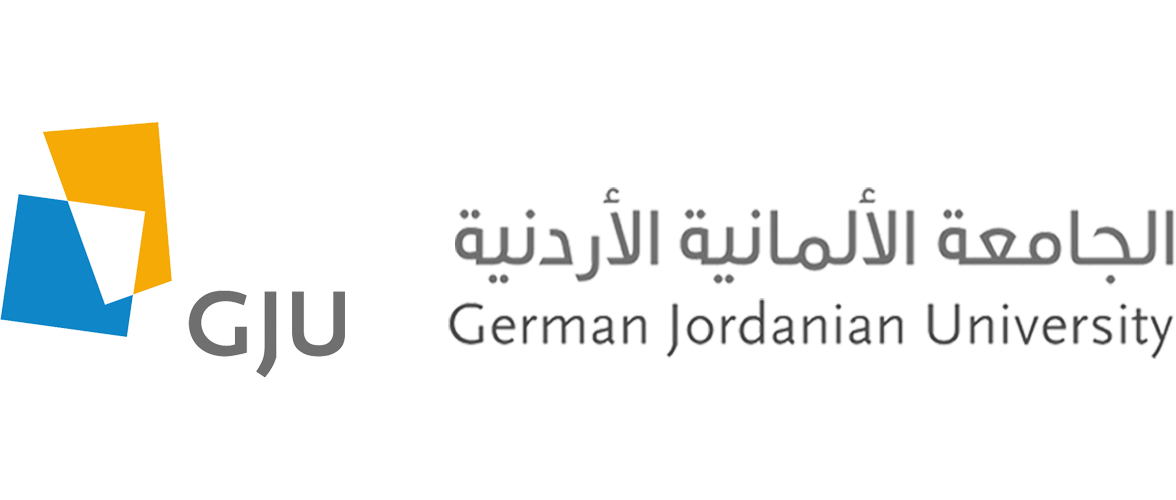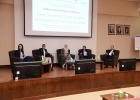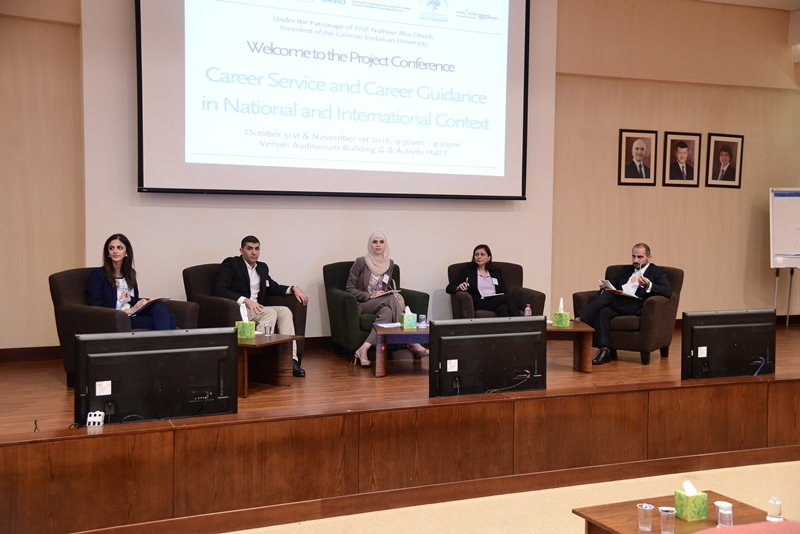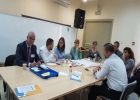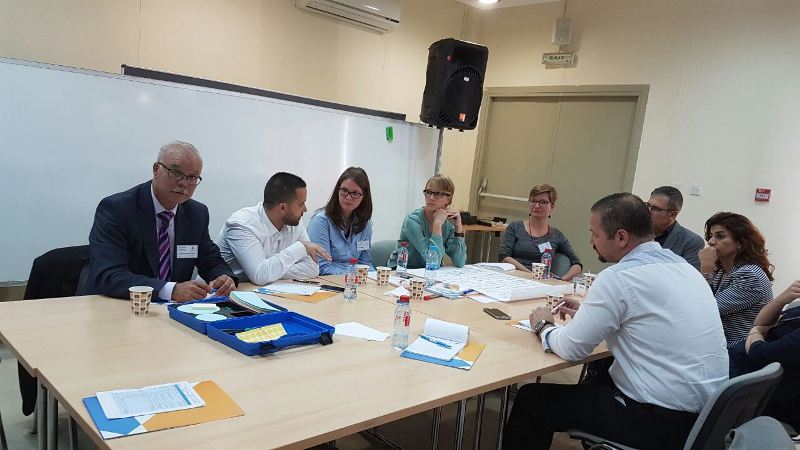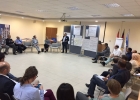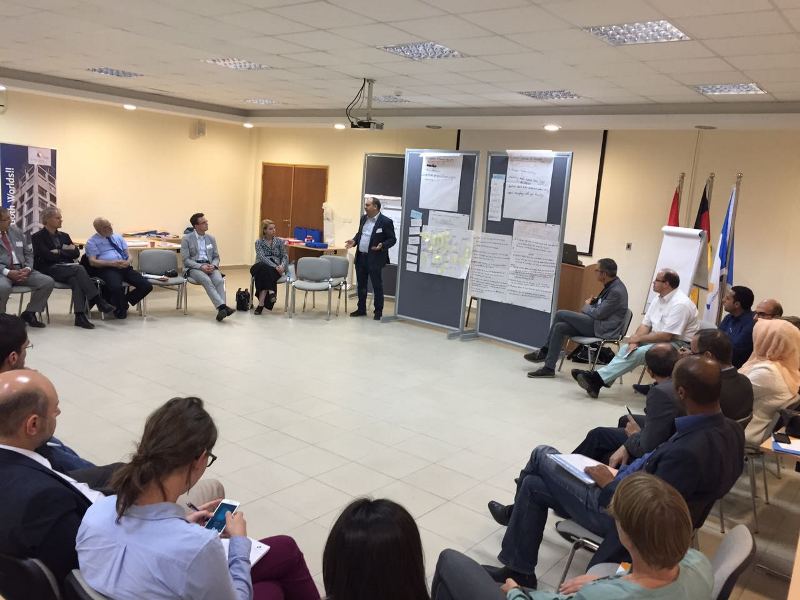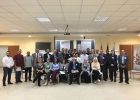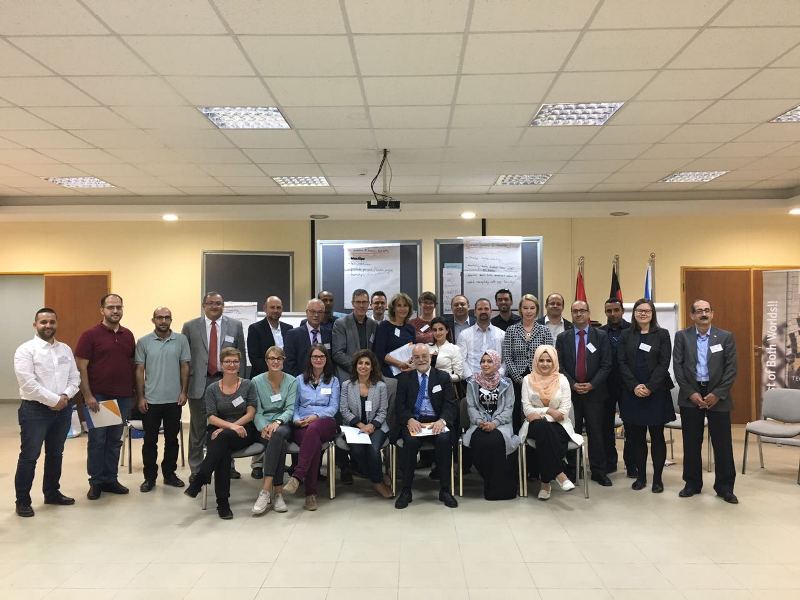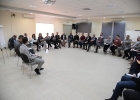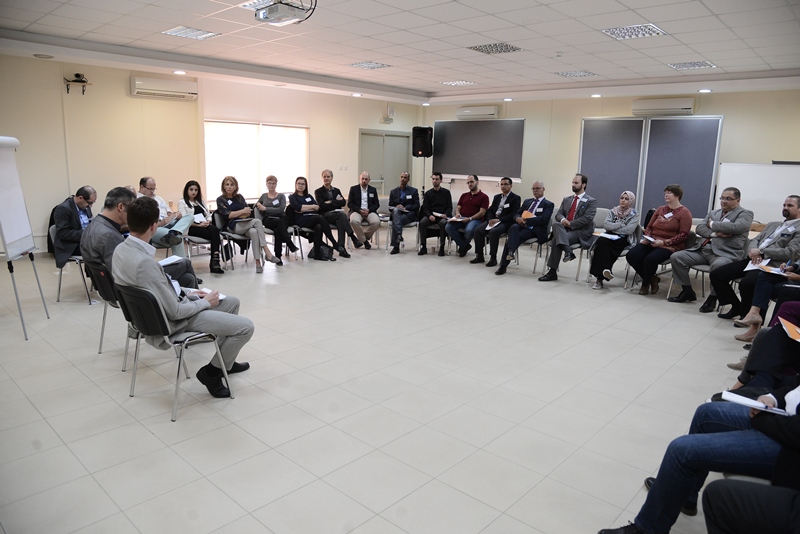Amman- October 31, 2016
 Enhancing the employability of Jordanian students and graduates to a great extent depends on successful Career Services and Career Guidance, for example through successful matching of Jordanian students and graduates with companies. To tackle the challenges, the Office for Industrial Links (OIL) at the German Jordanian University (GJU) in cooperation with the King Abdullah II Fund for Development – Career Guidance Office (KAFD-CGO) at GJU’s Deanship of Student Affairs hosted a Project Conference with the topic „Career Service and Career Guidance in National and International Context“ on the 31st October and 1st November 2016 at the GJU Campus Mushaqqar. The Conference took place in the frame of the DAAD DIES cooperation „Establishing Career Service Structures and Processes at GJU“ between the Aschaffenburg University of Applied Sciences and GJU.
Enhancing the employability of Jordanian students and graduates to a great extent depends on successful Career Services and Career Guidance, for example through successful matching of Jordanian students and graduates with companies. To tackle the challenges, the Office for Industrial Links (OIL) at the German Jordanian University (GJU) in cooperation with the King Abdullah II Fund for Development – Career Guidance Office (KAFD-CGO) at GJU’s Deanship of Student Affairs hosted a Project Conference with the topic „Career Service and Career Guidance in National and International Context“ on the 31st October and 1st November 2016 at the GJU Campus Mushaqqar. The Conference took place in the frame of the DAAD DIES cooperation „Establishing Career Service Structures and Processes at GJU“ between the Aschaffenburg University of Applied Sciences and GJU.
The first day started with the Official Opening by Britta Kaehler, the Director of the Office for Industrial Links. Also the Vice-President for International Affairs of GJU, Prof. Dorit Schumann, welcomed the guests on behalf of GJU’s President.. Eng. Stefanie Luniak (OIL) and Ernst Schulten (Career Service Aschaffenburg University of Applied Sciences) introduced the DAAD DIES Project in general and also the program of the next two days. At first, Eng. Raed Al Madanat from Loyac and Dr. Jan Knauer from the Career Service at the University of Muenster in Germany gave two „Good practice“ examples on the benefits of internship for companies and students and the cooperation between Career Services and Faculties respectively. Eng. Raed introduced Loyac, a NGO which provides students with training and internships and which arranged alone in 2015 internships for more than 780 students in Jordan. Dr. Jan Knauer explained the project „Employability“ at the Career Service of the University of Muenster, where skills profiles of the students are developed in close cooperation with academic staff within the different faculties to increase the skills demanded by the labor market. Moreover, he also illustrated Career Service formats to cover these skills.
On this first day, four panel discussions were also conducted. All four panels were related to the interaction between students/ graduates, universities and the private sector. The panelists had diverse backgrounds that range from GJU alumni and academic staff to company representatives and KAFD-CGO members. The topics of the Panels were: 1) Developing meaningful Internship Programs, 2) Enhancing the employability of students and graduates through cooperation between Career Services and Faculties, 3) Utilizing the full potential of University-Industry Cooperation, 4) Successful matching of students and companies through effective career counseling. The input generated in these four panels guided the topics of the working groups on the second day.
Working in four Groups, at the second day of the Project Conference the participants debated several issues, which came up the day before. For example about the necessary components of successful internship programs for students and companies, about possible activities or events to enhance university-industry cooperation and about the development of formal communication channels and structures for university-industry cooperation. The working groups consisted of representatives of both companies and universities. Thanks to the candid discussions, each group came up with different action plans to improve ways for students to be better prepared for the labor market and to foster the cooperation between universities and companies.
